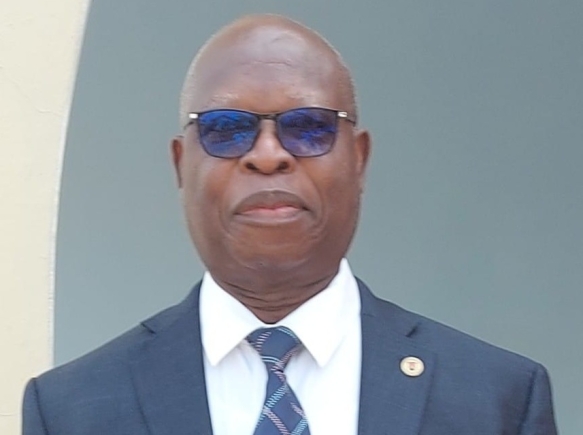
‘Temperament types?’ Revisited
A discussion at church during Easter 2025 about the roles Peter, Judas and Pilate played in fulfilling Scripture reignited the old subject of “Freewill and Determinism” Prof. Gyekye taught us in Philosophy at Legon in the 1970/80s.
While some opined Judas deserves more credit than he is given, because without him there would have been no Resurrection story, others think he deserves condemnation because he had the temperament of a thief/bad man.
His betrayal was, therefore, a choice he willingly made out of greed. This reminded me of my May 2023 article on “Temperament Types?” I stated:
**
A recent interesting discussion about how different human beings, particularly married couples, generally tend to be in terms of temperament, took me back to the “Temperament Types” we were taught in secondary school when we read Geoffrey Chaucer’s Canterbury Tales in 1966.
The law in Physics, which states that like-poles repel while opposite-poles attract, appears to be very visible and deeply rooted in the institution of marriage.
While a wife may be the quiet type, the husband may often be the exact opposite, and vice versa.
Hippocrates’ temperament types
Hippocrates (460-370 BC), the Greek physician and philosopher, who proffered an explanation to temperament differences, is often referred to as “the father of modern medicine,” for writing over 70 books on medicine.
Indeed, the oath medical doctors swear on qualifying for the profession, called the Hippocratic Oath based on his ideals in medicine, derives from the name Hippocrates.
So, what are the four “Temperament Types” Hippocrates identified? He named them Choleric, Sanguine, Phlegmatic and Melancholic.
Hippocrates stated that every human being is influenced by certain internal chemicals he called “fluids” in him/her. These “fluids” are responsible for our temperaments.
The four “temperament types” Hippocrates identified are Sanguine (Air), Choleric (Fire), Melancholic (Earth) and Phlegmatic (Water).
They are often referred to as “the temperament God gave you!”
They try to explain why humans are generally who/what they are, and why it is so difficult to change the temperament of individuals from what they are into what they are not.
Sanguine — The sanguine is lively, happy-go-lucky, very active, compassionate and could be boisterous.
Sanguines tend to be attention-seekers and love being the centre of attraction.
Choleric — Cholerics are serious, strong-willed, goal-oriented, hot-headed people who will sweep anybody in their way to achieve their goals. They are intolerant and must always have their way.
Melancholic — Unlike the Sanguine and Choleric who are extroverts, the Melancholic are introverts. They are prim and proper, perfectionist, meticulous, thoughtful, critical/fault-finding and detailed.
Phlegmatic — Like the Melancholic, the Phlegmatic are introverts.
They are gentle, kind, caring, peaceful, relaxed and sometimes timid.
They never rock the boat and get on with everybody.
Discussion
The four temperament types are also not mutually exclusive.
All four temperaments have their strengths and weaknesses.
Most human beings are a blend of two or more of the four.
A particular temperament may, however, be the dominant one in an individual.
For example, while a fiery and fearless “no-nonsense” leader may be seen as choleric, she/he may at the same time be compassionate and kind like a phlegmatic.
Indeed, there are different permutations of the various temperament types with suggestions as to which combinations are most suited for marriage.
It has been suggested a fiery hot-headed passion-driven choleric husband with an equally aggressive uncompromising choleric wife is a recipe for disaster, as there is no middle course for agreement.
A choleric will, therefore, need a non-choleric spouse for peace to prevail in the house.
Professions
With professions, some temperaments are considered more advantageous to individuals than others.
For example, in the military where dangers in the field need to be overcome aggressively and fearlessly for success, an aggressive choleric temperament may be preferable.
On the other hand, in academia, a calm, detailed, empathetic and meticulous professor/teacher might be the best for students.
Being prim and proper and fault-finding, the melancholic can bring out the best in their students.
For the sales profession, a confident people-oriented sweet-talking sanguine individual might be the best.
Overall, however, a tinge of the phlegmatic’s kind, gentle and peaceful qualities underlying the other three temperaments could be an advantage in most situations!
Even though the phenomenon of “Temperament Types” was explained and given credence by Hippocrates over 2000 years ago, it is still used as the basis for, though not mathematically or in absolute terms, to explain why humans behave the way they do.
However, it does not make up for the leadership inadequacies of politicians who appeal passionately to the electorate to be given a chance to lead, only to renege on their promise.
Leadership
For Ghana, whatever the temperament a leader may have, what Ghanaians need is an honest, sincere, compassionate and truthful leader of integrity and strength, with a vision, to move Ghana forward.
Over 60 years after independence, the present economic mess in which we find ourselves, where bonds of pensioners are attacked with such wicked cruelty and callousness, making some contemplate suicide as an option, is unacceptable in any leader, irrespective of being choleric, sanguine, phlegmatic or melancholic.
Leadership must be human, humane and humble, and not arrogant and cavalier, in dealing with the lives of lesser mortals, in their estimation!
Unfortunately, two years after this article in 2023, “galamsey” continues to ravage us.
Co-ordinator of Eco-Conscious Citizen Awula Serwah has challenged the government to repeal LI 2462, and not be “disingenuous”, only amending it.
As it is often asked on the radio, “What kind of people are we,” so dedicated to destroying ourselves for money/gold?
No temperament type must be dedicated to Ghana’s destruction.
Leadership, lead by example! Fellow Ghanaians, wake up!
The writer is the Former CEO, African Peace Support Trainers Association,
Nairobi, Kenya/Council Chairman, Family Health University,
Accra.
E-mail:
Read a fuller version of this acticle online at www.graphic.com.gh or graphic omline
